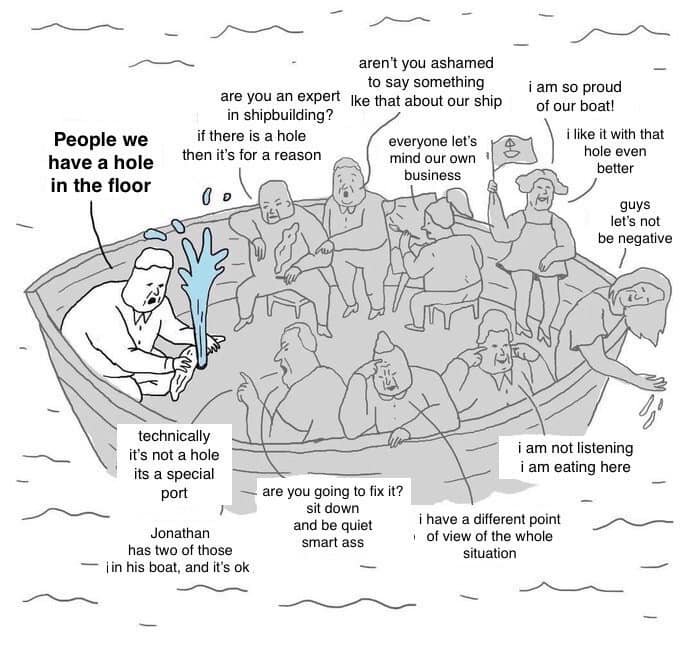A practical bridge-building approach for the #openweb / #OMN – for grassroots organisers, Fediverse communities, and sceptical #FOSS engineers.
An affinity group is not simply “a group of people who agree.” It is a functional social tool: small enough to build trust, structured enough to act, and open enough to grow.
A working path is to start with purpose, not only ideology. The biggest mistake is forming around identity or theory rather than function. Affinity groups work when they are built around shared work, not shared labels. So for #OMN, instead of saying “let’s build an affinity group for radical media,” we try something concrete like: “a small group committed to building and testing OMN publishing workflows for real users.” A clear, practical purpose lowers defensive reactions and creates common ground.
Ideal size and composition matter. Affinity groups historically work best with around 4–8 people – large enough for diversity, small enough for trust. This avoids both NGO-style bureaucracy and lone-founder burnout. Useful roles include: builder (technical), organiser (social process), storyteller or documenter, critic/tester (essential for reducing groupthink), and connector (linking to the wider network). These are roles, not hierarchy.
Trust must be built through practice. Many people distrust grassroots projects because they have seen “pure trust” models fail. So don’t rely only on ideological alignment, build procedural trust instead. Examples include small, regular deliverables (“what did we actually ship?”), rotating facilitation, transparent public logs where possible, and shared infrastructure ownership, so no single person holds control. Trust grows from repeated, visible action.
Clear boundary rules prevent both NGO capture and chaos. Without boundaries, affinity groups dissolve. Keep rules simple and aligned with #KISS: anyone can observe, participation requires contribution, decisions are made by consent or rough consensus, and there are no permanent leaders, focus more on rotating roles. Forking is allowed, following federation principles. This mirrors ActivityPub socially as well as technically.
Mediation is built into #OMN. Use soft mediation practices such as assuming good faith but verifying through actions, and asking whether behaviour supports the shared task. When conflicts cannot be resolved, allow parallel experiments rather than endless arguments. This avoids the classic problem of well-meaning people unintentionally derailing collective work.
Avoid the #NGO trap from the start. Instead of mission statements, boards, and strategic documents, focus on working notes, small experiments, and iterative prototypes. Document reality rather than intentions. NGO structures often push power upward; affinity groups keep power at the edges.
Bridge-building with #FOSS and Fediverse communities is essential for adoption. Frame #OMN affinity groups as neither anti-engineering nor anti-structure, but anti-centralised control. Messaging like “we’re applying federation principles socially, not just technically” resonates strongly with #ActivityPub builders and open-source contributors.
Growth should happen through replication, not scaling. The affinity group is not the movement – it is a seed node. New participants do not simply accumulate; instead, new affinity groups form. Groups coordinate through federation via shared protocols and culture. This approach mirrors #Indymedia nodes, the early Fediverse, and many successful activist networks.
Concrete first steps: identify 3–5 people already doing related work; define one narrow OMN goal; hold a weekly 60–90-minute working session with a public log; rotate facilitation from the beginning; and ship something small within two weeks. Momentum builds legitimacy.
Affinity groups solve three problems simultaneously: they prevent NGO-style centralisation, reduce lone-founder burnout through shared responsibility, and resist #dotcons growth-for-growth’s-sake logic. In many ways, they are the social equivalent of federation.
















